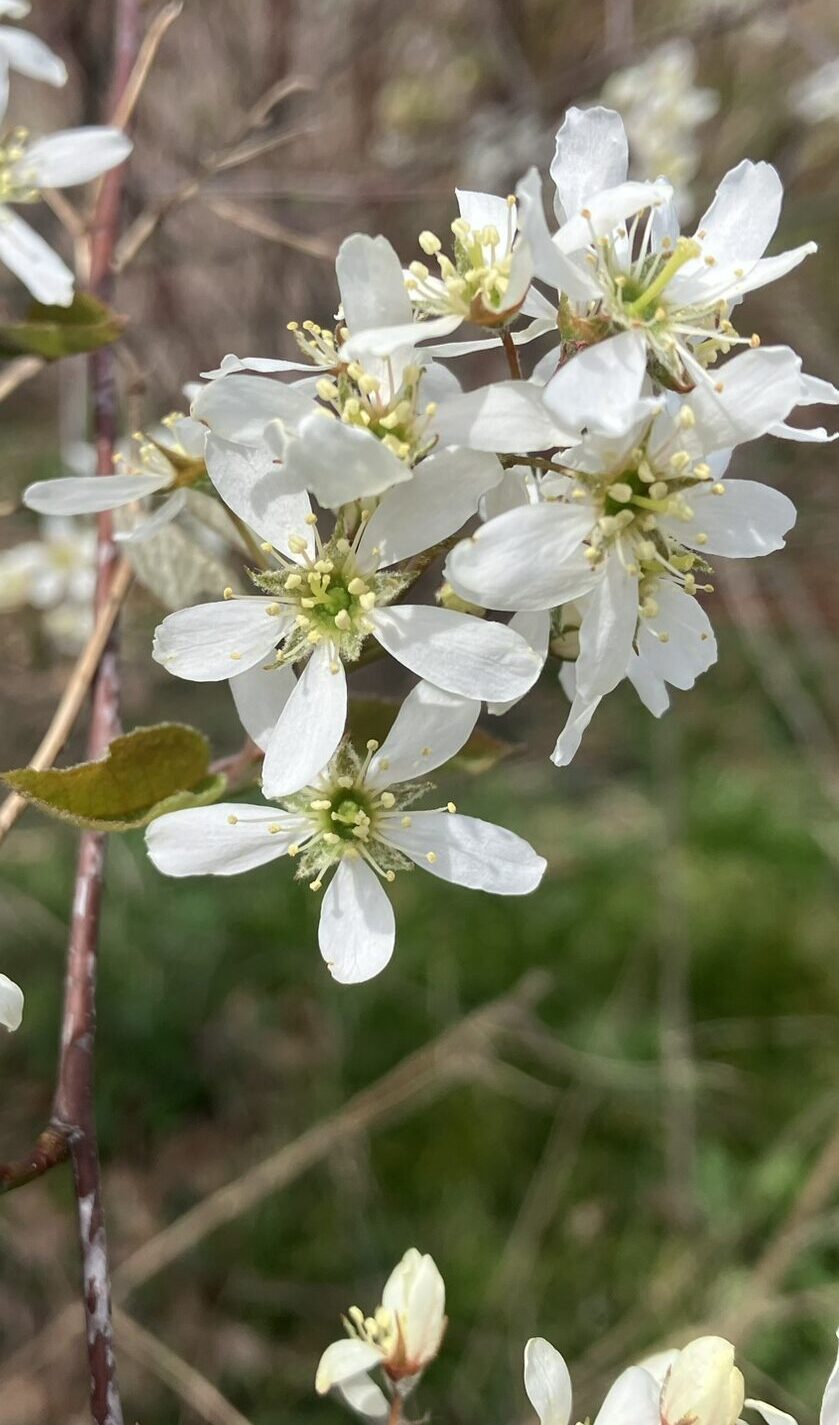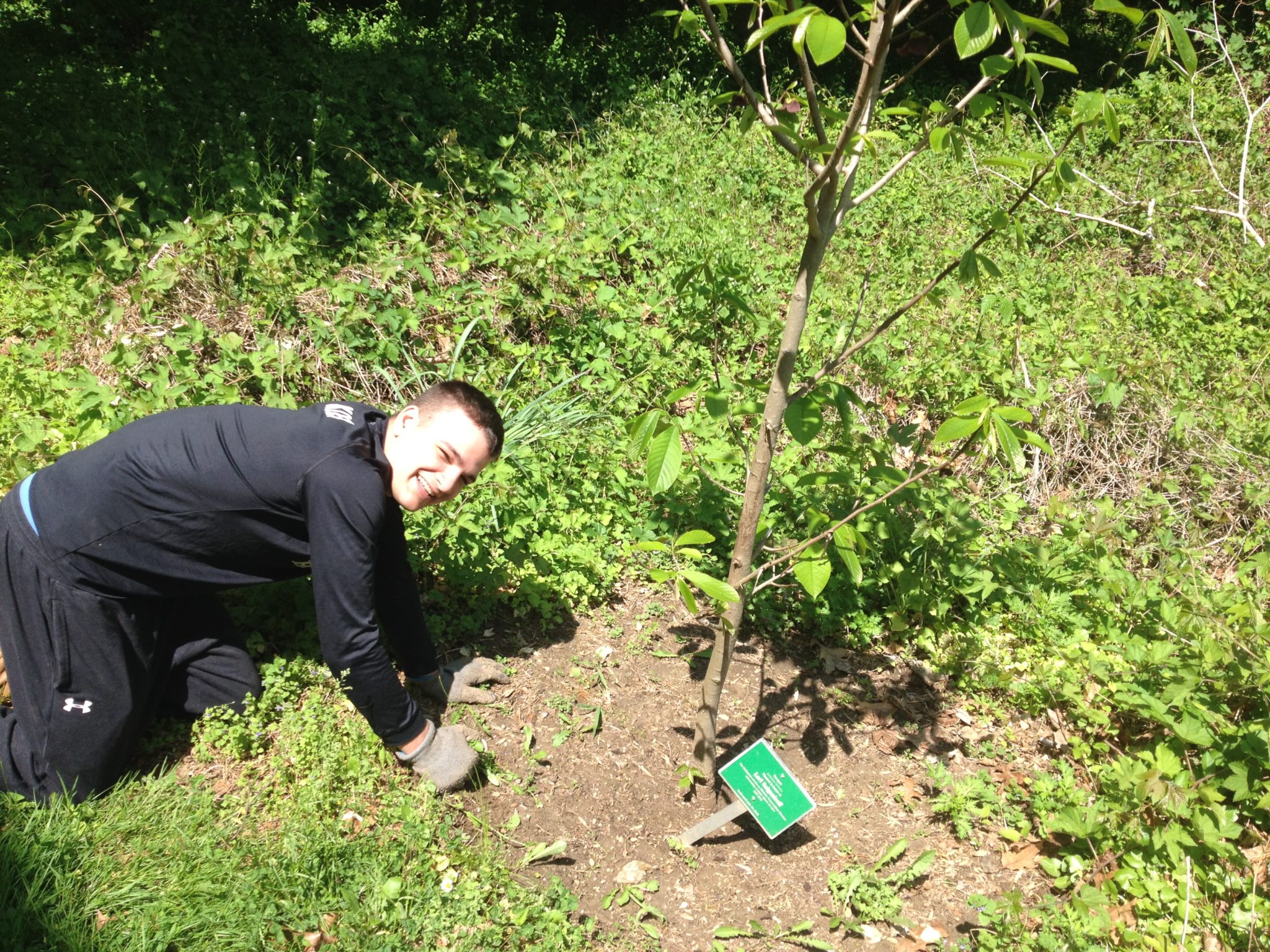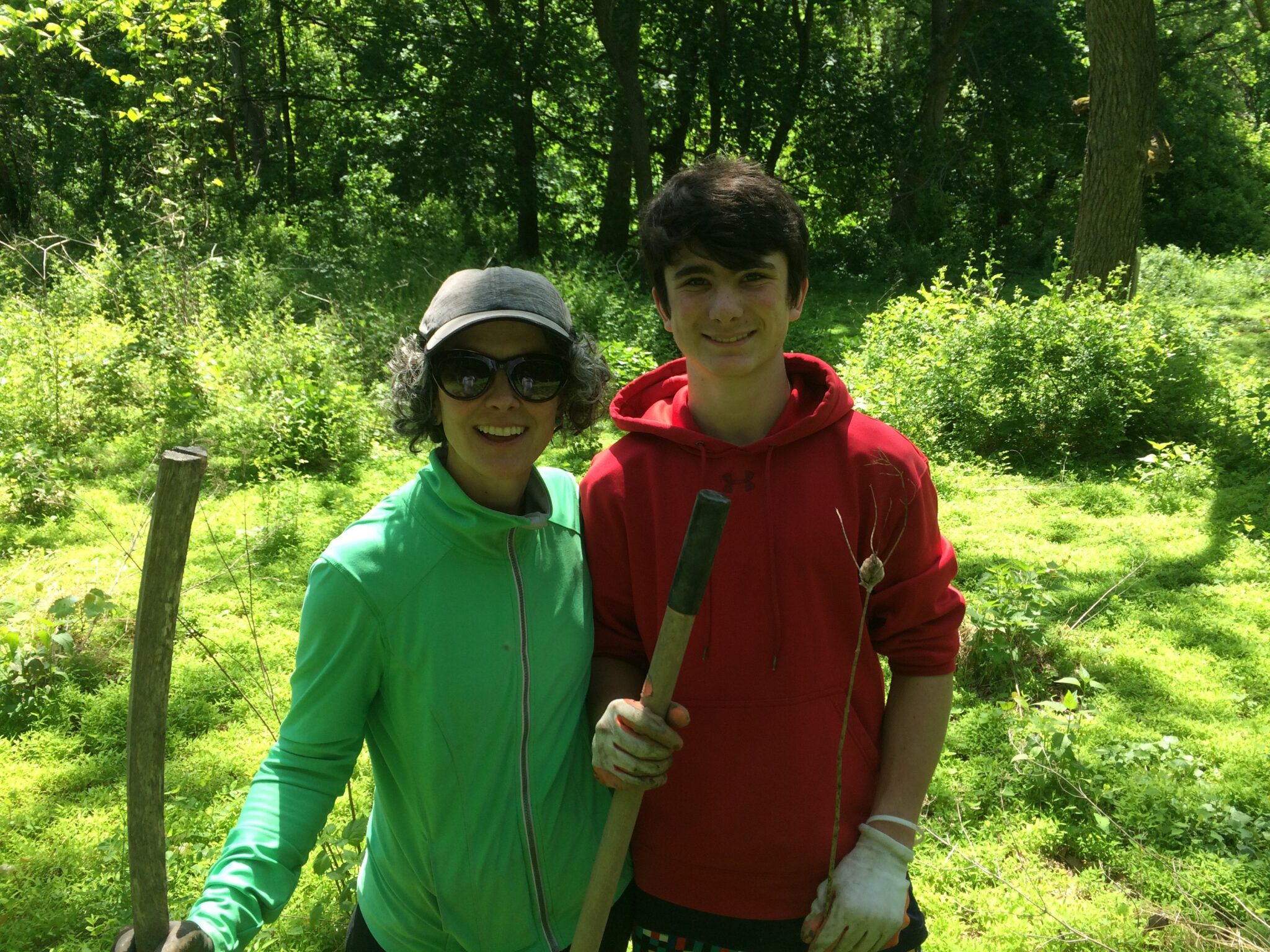Over the course of our area’s development, countless trees have been cut down without being replaced. Trees improve quality of life for all organisms, including people, so every tree lost has a tangible impact.
Tree roots, leaves, and stems slow down and soak up hundreds of gallons of stormwater. This water would otherwise rush downhill, picking up pollutants and contributing to flooding. Neighborhoods with fewer trees have more stormwater issues. After storms end, some of the absorbed water exits the trees through transpiration, which regulates nearby temperatures. Trees also help hold soil in place, slowing erosion.
Trees indigenous to our region provide habitat for countless organisms. A single native oak tree can host over 500 species of butterflies and moths; biodiversity has a direct correlation to disease reduction. On a larger scale, trees capture carbon – a prominent greenhouse gas – and improve air quality. A recent study in Philadelphia indicated that the mere presence of trees can improve mental health. Life as we know it could not exist without trees.
Protecting established trees is as important as planting new trees. Caring for trees can be as simple as cutting and removing vines and weeding selectively around the bases. While trees do not need to be pruned, strategic pruning can be beneficial in densely developed areas. Be sure to hire certified arborists to examine and prune your trees. Always avoid volcano mulching.
The Lancaster County Planning Commission created an extensive native tree and shrub list, which can be useful when selecting trees. If deers are a concern, the Pennsylvania Department of Conservation and Natural Resources has a helpful list of deer tolerant plants.


